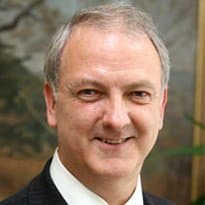Sir Bruce Keogh has called on 250 stakeholders to support the uptake of telehealth and telecare as part of the Technology Enabled Care Services programme.
The programme, formerly known as 3millionlives, initially aimed to have 3m people using telehealth or care by 2017 but was taken over by NHS England as part of the shake-up of the NHS in April 2013.
The commissioning board undertook a review of the programme, which has “led to a shift in its strategic direction.
Its national medical director has now written to 250 stakeholders asking them to support the programme, which “takes the NHS into a new and exciting technological era that will help empower patients and improve health outcomes”.
“Present and emerging technologies offer opportunities for us to transform the way we engage in, and control, our own healthcare,” says Sir Bruce in his letter.
“Imagine the degree of personal control that could be afforded by a smart phone configured for medical applications, coupled with wearable biosensors and capable of sensing, analysing and displaying vital signs and alerting you and your clinicians to significant changes or deterioration wherever you are, rather than through check-ups at a hospital or GP practice.
“Any escalation in a condition could be identified and addressed in a timely and proactive way. It would lead to better health outcomes while being more convenient for the patient, their carer and their clinician.”
3millionlives was launched by Prime Minister David Cameron in 2012 on the back of headline findings for the Whole System Demonstrator programme. However, more detailed studies of the WSD pilots found little evidence justifying the roll-out.
The 3millionlives pathfinder programme which was supposed to deliver 100,000 telehealth users by the end of 2013, suffered from slow uptake and NHS England scrapped the programme when it took over the responsibility.
Sir Bruce told stakeholders that the old 3millionlives “went some way towards making a clear case for telehealth and telecare and there are now a number of examples of tele-interventions being used very successfully”.
However, the new TECS programme has been “re-focused to address the demand from health and social care professionals for support and practical tools to commission, procure, implement and evaluate technology enabled care services”.
“Our ambition is to create the right commissioning environment that supports and encourages the innovative use of technology to improve health outcomes, empower patients, and deliver more cost-effective services as part of a modern model of integrated care,” says Sir Bruce.
The TECS stakeholder forum, which consists of organisations from health, social care, industry and the third sector, was established late last year. Through the forum’s views and proposals form the basis of the TECS Improvement Plan 2014-17.
“To ensure continued progress, we have brought together a TECS Implementation Group consisting of experts and leaders from across these sectors whose remit is to support the strategic development and delivery of the proposals within the Improvement Plan,” says Sir Bruce.
“In addition, we have formed the TECS Executive Steering Group which meets regularly to provide clinical, technological and strategic leadership for the programme at a director level in NHS England.”
NHS England’s head of programme delivery for the TECS programme, Cathy Hassell, said last month that the NHS Commissioning Assembly is developing a toolkit for commissioners which will be launched later this autumn.

